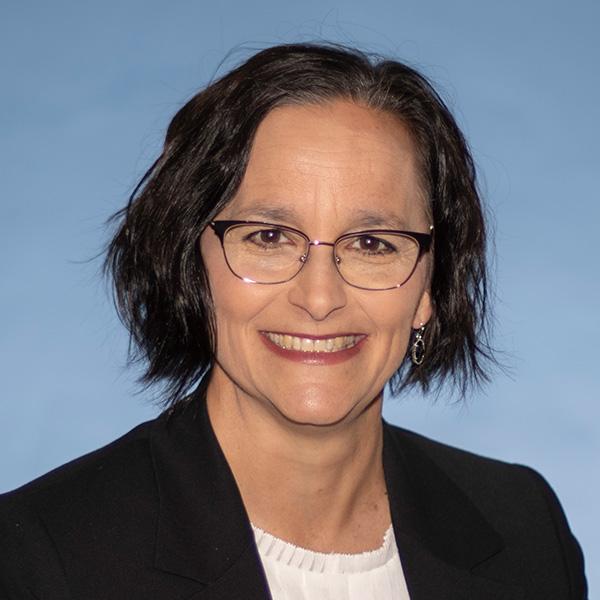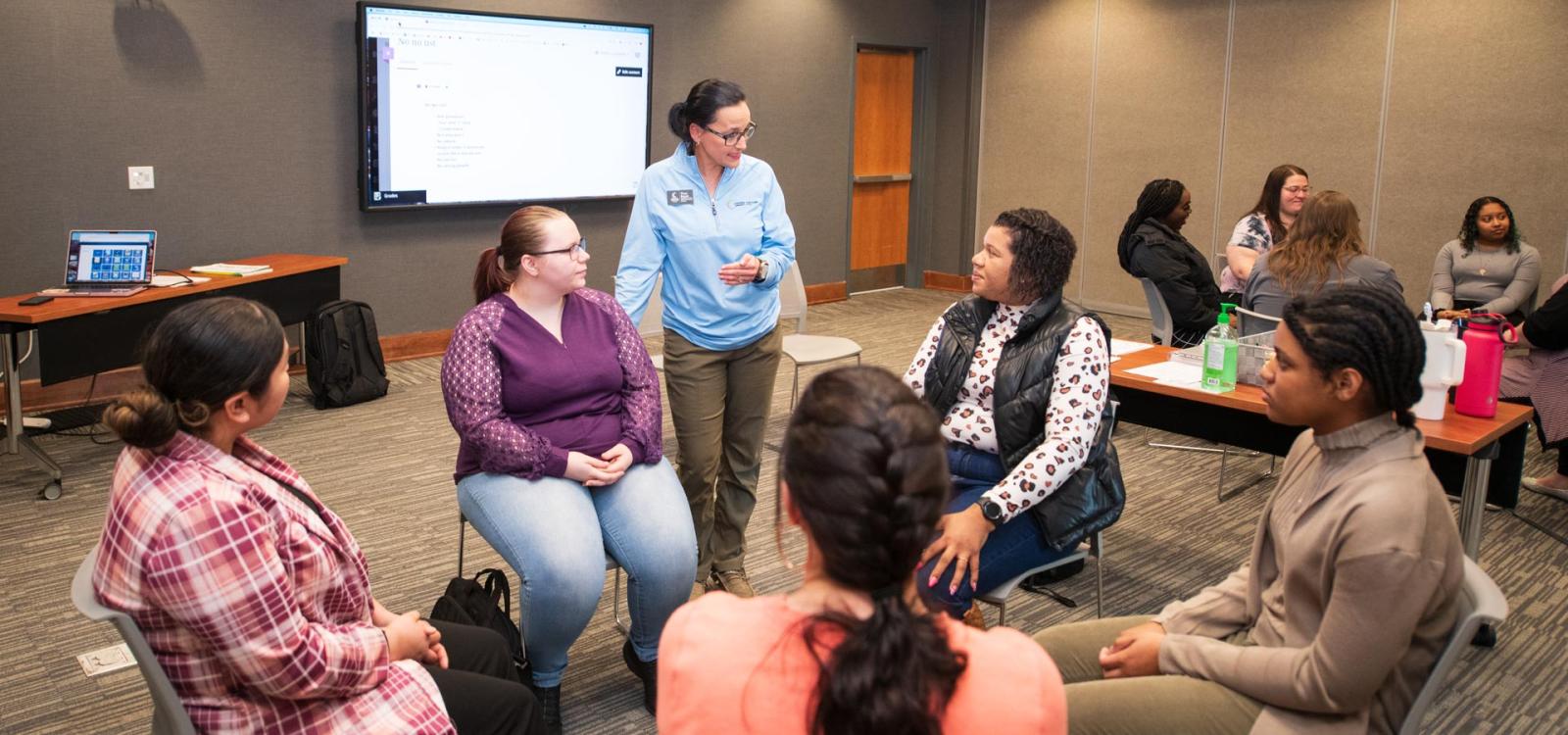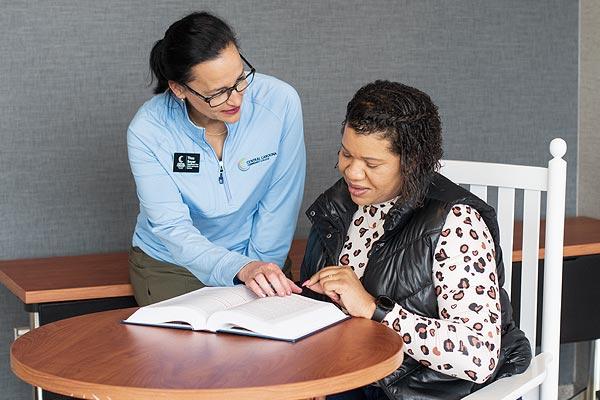

Social and Human Services

Professional Services
Create positive change by helping people and strengthening communities.
What You’ll Learn
The Social and Human Services curriculum prepares students for entry-level positions in institutions and agencies that provide social, community, and behavioral health services. Along with core courses, students take courses that prepare them for specialization in specific human service areas. Coursework includes professional knowledge, skills, and values in human services.
Why Choose the Degree?
This two-year degree prepares students for direct entry into the workforce or further education, with a focus on practical skills and flexible studying. With an online platform, textbook free learning, and relevant projects students can reduce the stress of adding personal education into their busy lives.
• Prepares graduates for jobs in government and nonprofit agencies
• Offers transfer opportunities to colleges and universities
• Classes specific to the degree are: Case Management, Interviewing Techniques, Group Dynamics, and Crisis Intervention
• Students can choose to earn the Diploma and Degree.
The Social and Human Services curriculum prepares students for entry-level positions in institutions and agencies that provide social, community, and behavioral health services. Coursework includes foundational knowledge, skills, and values in human services. Diploma graduates should qualify for government, private, and nonprofit social and human services agency positions.
Why Choose the Diploma?
Start with a strong foundation in just three semesters. The diploma gives students a solid introduction to the field in only one year. It’s the perfect starting point for those who want to explore multiple areas of human services before committing to a longer program.
• Explore a variety of human services fields: Mental Health, Social Services (Social Work), Gerontology, Addiction and Recovery, and Intellectual and Developmental disabilities
• Once graduated, continue to earn the A.A.S degree with just two more semesters
Why Study Social and Human Services at CCCC?
Finish Faster
CCCC has the only Diploma program in our area - so you can finish in as little as 3 semesters or continue for 2 more semesters to earn your Degree.
Fits Your Lifestyle
Ninety percent (90%) of the program can be completed online with relevant projects and application-based learning. Additionally, there are no textbook costs and no math requirement.
Multiple Career Choices
Careers are in high demand and offer a wide range of interests for students desiring to positively impact their communities.
More Helpful Links for This Program


Careers
Social and Human Services is a wide field, allowing students to follow multiple pathways and specializations.
- Family Advocate
- Caseworker
- Shelter Coordinator
- Behavior Technician
- Direct Care Professional
- Administrative Support
- Not-for-profit Founder
- Case Manager
Program Contact

We’re Here to Help
Want to talk to an advisor about requirements and classes, or get more details on jobs in this industry?
Transfer Programs
Credits from select courses within the program may transfer to four-year colleges and universities on a case-by-case basis.